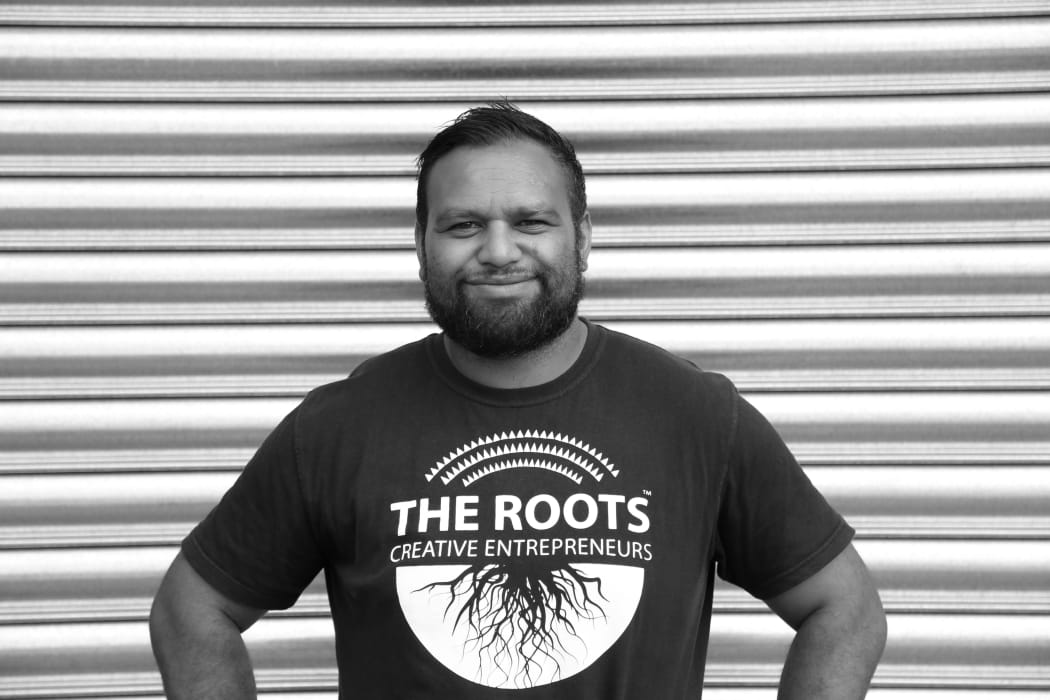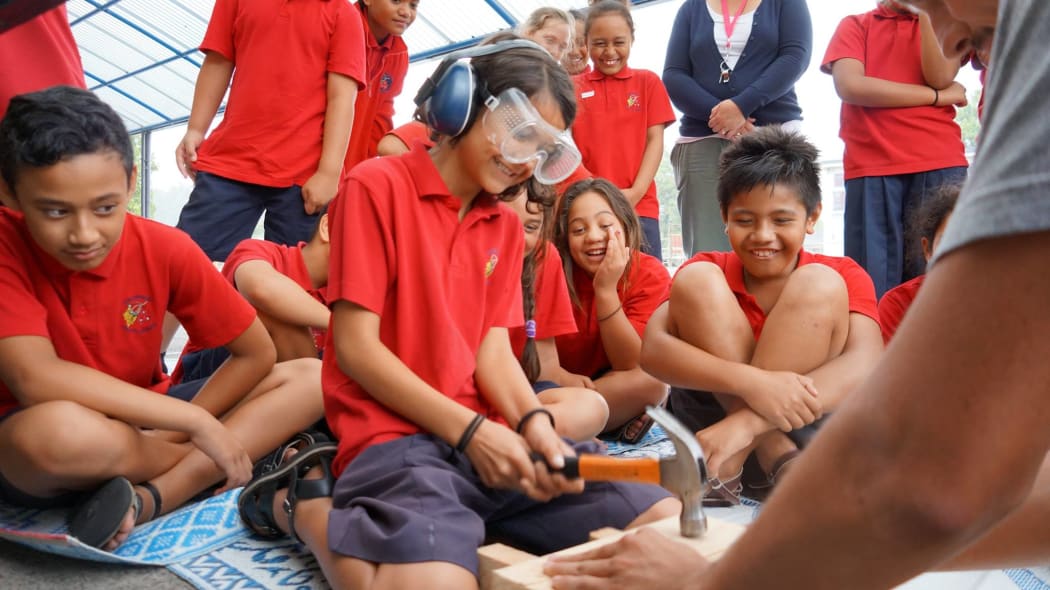
Photo: supplied
South Auckland has some amazing talent, but its young people need more support to channel their creativity, says architect Waikare Komene.
Komene is the co-founder of South Auckland design firm Creative Native and The Roots Creative Entrepreneurs – a community organisation working with young Māori and Pasifika.
Komene was a fidgety kid and school didn’t come easy for him, but he always liked working with his hands and had a go-getter attitude.
“If you showed me once I would remember it forever, but if you talked about it on the board it went in one ear and out the other.”
Many kids would benefit from a more practical, hands-on learning environment, he says.
“Learning through action, through doing, through sharing, through knowledge, I think that’s a better way to learn.”
Originally, Komene wanted to be a builder, but he also loved drawing, design and coming up with solutions to problems.
Those around him encouraged him to consider all the options, he says.
“You could be a builder probably till your 40, then your body will give out. Otherwise be an architect, and when you're 60 you’re producing your best work” he was told.
Komene struggled to "get it" in his first year of architecture school, but after a candid conversation with his tutor David Chaplin he started to realise his own value and the value of sticking with it.
Growing up in South Auckland, it can be easy to buy into the stereotypes and judge yourself negatively, he says.
“I wanted to give up, this is too hard. I live in South Auckland and I have to travel all the way to the city and sometimes I don’t have the bus fare to get in or to get home.
“[Chaplin] sat me down and told me that we were the future of New Zealand architecture, that Māori and Pacific cultures should start to be reflected in our cities and communities. That's our point of difference in the world so there’s going to be a time when we need people like you.”
Komene would sometimes stay overnight at university, pulling a sheet over his desk and sleeping underneath it in a sleeping bag. He’d shower at the marae and grab some Weetbix and toast there for breakfast, then go back for noodles at lunchtime.
Komene reconnected with and became proud of his Māori culture while at university, he says.
“Once I reconnected it sort of gave me a boost in my step where I felt like I had a point of difference [compared to] the other 150 students in architecture who didn’t look like me.”
Komene graduated with a Masters in Architecture in 2011, alongside the co-founder of Roots Martin Leung-Wai, who he'd first met back at intermediate.
Although both had masters degrees, neither could get jobs when they came out, which was a slap in the face after seven years tertiary study, Komene says.
“We couldn’t see an opportunity to utilise the skills we’d just learnt so we created our own opportunity.”
The Roots runs programmes which give young people a taste of the creative industries.
“For us, it’s about providing that platform for them to get an understanding of what the architecture or the creative industries is about and helping open those doors for them once they’ve said to us ‘Hey, this is what I want to do.’ We make those connections and go into the school and kick the door down and say ‘You need to talk to this young fulla’.”
The Roots' focus is on creative sustainability – addressing the environmental impact of waste and treating waste as a resource which can be repurposed into functional objects that add value to communities.

Photo: The Roots: Creative Entrepreneurs
For one of The Roots' projects, 4,000 Auckland primary school students write or draw pictures of their hopes and aspirations, and these pieces of paper were then placed in 4,000 plastic water bottles.
The children's messages were later archived in the Auckland Museum and the bottles transformed into eight greenhouses which were donated to the primary schools involved.
In another project, 9.5 tonnes of rubbish was pulled from Puhinui Stream and found to include 200 shopping trolleys, which were then repurposed into chairs.
The role of Komene's design firm Creative Native is to mediate between the South Auckland community and council, he says.
At the moment, they're working to have a say in the “massive opportunity” that is the Transform Manukau project.
“If you get the community involved with helping shape their own city, then that becomes community ownership and they feel responsible for looking after it.”
Komene says the main reason he became an architect was to provide his community with secure, comfortable housing they don’t need to work three or four jobs to pay for.
He works hard himself, and owning a house in Otara is not an option available to him, he says.
He fears the suburb could become gentrified like Ponsonby.
“Once our community has changed 20 years down the track, where do you see us living in this community? Are we even here or have we all been booted?”
Komene wants to help the young people of South Auckland harness their creativity and passion towards making a contribution locally.
“That’s what I’m trying to encourage, more do-ers in our community.”
“That’s what we’re wanting to bring out of our young people – that attitude that they can achieve anything no matter what background they come from or where they come from.”

